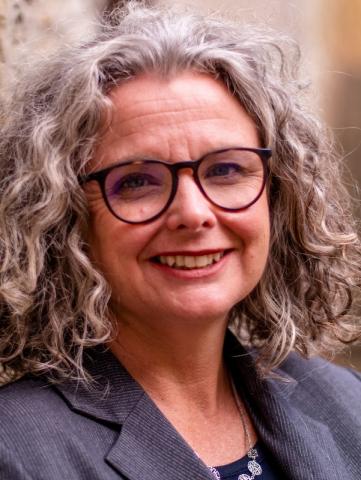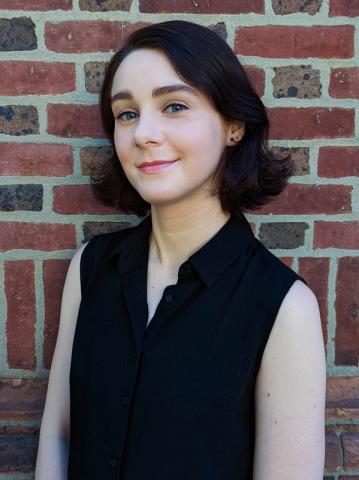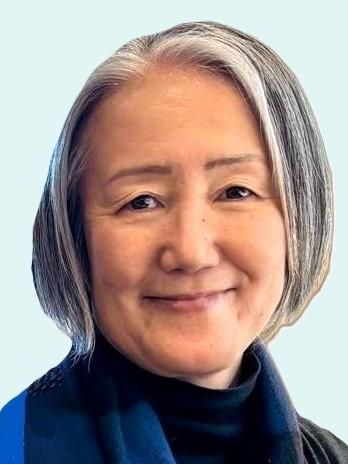The Environment, Science and Risk Communication (ESR) Section will be holding online elections for two co-chair and two vice-chair positions, for the term 2025 - 2029.
The elections will be held online from 7 to 21 May using the SurveyMonkey platform.
Individual members and representatives of institutional members in good standing, who are also registered as members of the Environment, Science and Risk Communication Section by 5 May, are eligible vote. Voters will receive a voting link on 7 May.
To verify if you are a member of the ESR section, log in to your IAMCR account and select “My Sections and Working Groups” from the menu.
View the candidates and read their statements below.
Read about the Environment, Science and Risk Communication Section
More information and timeline at https://iamcr.org/s-wg/elections2025
Candidates
For Co-chair:
For Vice-chair:
Note: David I. Stokes has formally withdrawn their candidacy for the position of Vice-chair of the Environment, Science and Risk Communication Section.
Statements
For Co-chair

Claire Konkes, University of Tasmania, Australia
As a Senior Lecturer in Media and Communication at the University of Tasmania, my research and teaching focus is environmental communication and, more broadly, media and communication studies. My research and teaching are driven by my lifelong curiosity about the challenges and debates that occur at the intersections of environmental issues, mediated contest, and public policy. This interest culminated in my recent book, Green Lawfare: The Strategic Use of Law in Mediatized Environmental Conflict (Peter Lang, 2024). My research has been published in journals including Environmental Communication and Journalism Studies.
I am interested in the complex place of scientists and science communication in addressing the critical challenges of our times. My work with current ESR co-Chair Kerrie Foxwell-Norton has explored the complex place of science and scientists in the politicised contests over the protection of Australia’s Great Barrier Reef and published in journals including International Communication Gazette and Public Understanding of Science.
My experience in academic service includes being head of discipline (Media) at the University of Tasmania (2019-2022) and various course coordination roles. I serve on the executive committee of the Australian and Aotearoa New Zealand Communication Association (AANZCA) and have co-organised conferences for national (JERAA) and international (IECA) organisations and worked with editorial teams or served as a reviewer for leading journals in media and communication. And, of course, reviewed abstracts for IAMCR’s ESR for some years.
Prior to joining academia, I served in various roles in environmental advocacy, including some of the early climate change campaigns in the 1990s, before working as a journalist for The Australian newspaper and other publications. Most recently, my journalism has appeared in The Monthly magazine and The Conversation, and I regularly engage with news media inquiries about environmental politics and the rapid changes in news media.
It is with great enthusiasm that I submit my candidacy for the position of Co-Chair of IAMCR’s ESR Section and support the candidacies of Dr Hanna E. Morris as Co-Chair, and Prof. Miki Kawabata and Dr. Sibo Chen as Vice Chairs. If elected, I am dedicated to working closely with others toward facilitating a) interdisciplinary research collaborations; b) initiatives that provide mentorship and networking opportunities; c) an inclusive and welcoming environment for scholars from diverse backgrounds; and d) a sense of community among ESR members through regular communications.
I am excited about the opportunity to work alongside Prof. Miki Kawabata, Dr. Hanna E. Morris and Dr. Sibo Chen. Together, we aim to build upon the strong foundation laid by our predecessors who developed our Working Group into a successful and popular Section.
Dr Claire Konkes
Senior Lecturer in Media and Communication
University of Tasmania, Australia
Hanna E. Morris, University of Toronto, Canada

My name is Hanna E. Morris and I’m an Assistant Professor at the University of Toronto. My research concentrates on the climate-media-democracy nexus and explores critical questions of power and meaning-making around climate change. My newest book is titled Apocalyptic Authoritarianism: Climate Crisis, Media, and Power (Oxford University Press, 2025) and I also recently co-edited the book titled Climate Change and Journalism: Negotiating Rifts of Time (Routledge, 2021). My research has been published in international peer-reviewed journals including Environmental Communication, Journal of Language and Politics, WIREs Climate Change, Journal of Environmental Media, Media Theory, Places Journal, and Politique Américaine.
It is my honor and privilege to run for the position of Co-Chair of IAMCR’s Environment, Science, and Risk Communication Section. I have been an active member of IAMCR and the ESR Section (formerly, Working Group) ever since I first began my graduate studies in 2016. As a graduate student searching for my place in the research community, I felt instantly welcomed and valued by the ESR Section’s leadership team and members and am truly grateful for this scholarly community. I am running for the position of Co-Chair with a core commitment to continuing to advance the Section’s robust and diverse scholarship through excellent conference sessions. Additionally, I am committed to: (1) continuing to make the Section inclusive and welcoming for graduate students and emerging scholars by providing new networking and social opportunities during the conference each July and throughout the year via online writing workshops, research presentations, and seminars geared towards early career ESR scholars; (2) strengthening the sense of connection between members of the broader ESR research community via quarterly ESR Section newsletters that compile research and job opportunities, announcements about section members’ newest publications, and commentary contributions from Section members who wish to discuss the ever-pressing and ever-changing current environmental, technological, cultural, and political contexts of today in dialogue with their new and ongoing research.
I have years of experience with academic service work and have co-organized multiple pre-conferences (such as last year’s IAMCR ESR pre-conference in collaboration with the current Co-Chair of our Section, Dr. Kerrie Foxwell-Norton) and graduate student professional development and writing workshops (for the International Communication Association and the International Environmental Communication Association). I greatly enjoy co-building diverse, inclusive, equitable, and vibrant scholarly spaces and am committed to expanding and strengthening our wonderful ESR research community.
With this commitment in mind and the goal of a seamless transition that builds upon the previous leadership team’s incredible work, I support the candidacies of Dr. Claire Konkes (University of Tasmania), Dr. Miki Kawabata (Mejiro University), and Dr. Sibo Chen (Toronto Metropolitan University). We believe that in addition to our different geographical, cultural, and scholarly backgrounds, our shared vision and commitment to the ESR Section will set us up well to collaboratively strengthen our scholarly community in partnership with fellow ESR Section members. I hope that you will vote for each of us as your new leadership team (Dr. Konkes and I as Co-Chairs and Dr. Kawabata and Dr. Chen as Co-Vice Chairs). Thanks for your consideration!
For Vice-chair

Sibo Chen, Toronto Metropolitan University, Canada
My name is Sibo Chen, and I am an Associate Professor at Toronto Metropolitan University. I’m delighted to present my candidacy for the position of Co-Vice Chair of IAMCR’s Environment, Science, and Risk Communication (ESR) Section. My current research explores how political polarization is communicated in the public sphere, focusing on three topics: climate change, online mis/disinformation, and anti-Asian racism. My newest book is Energy Politics and Discourse in Canada: Probing Progressive Extractivism (Routledge, 2023), and my research been published in international peer-reviewed journals such as Chinese Journal of Communication, Environmental Communication, and Journalism Practice.
It is my honor to run for the ESR Co-Vice Chair role, and support the candidacies of Dr. Claire Konkes (University of Tasmania), Dr. Miki Kawabata (Mejiro University), and Dr. Hanna E. Morris (University of Toronto). We believe that our diverse geographical, cultural, and academic backgrounds, combined with our unified vision and dedication to the ESR Section, will effectively enable us to collaboratively enhance our scholarly community alongside other ESR members.
I have been a member of IAMCR and ESR since 2015, and both have played vital roles in my professional development and in helping me find my research community. Between 2019 and 2023, I served as Co-Chair of the Emerging Scholars Network Section, gaining experience in managing paper submissions, reviews, and panel planning, while fostering collaboration. Additionally, I expanded ESN’s reach by recruiting discussants, co-organizing sessions, and promoting open dialogue within IAMCR. I also co-organized online workshops focused on practical academic skills, targeting scholars especially from Africa and Latin America.
If elected Co-Vice Chair, I am committed to enriching ESR’s robust and diverse scholarship through excellent conference sessions. I will assist in developing our section into a global research network and broadening our membership across diverse regions. I also aim to serve as an effective liaison among IAMCR-ESR, the International Environmental Communication Association, and the International Communication Association. I believe there is significant interest for more such initiatives. As travel restrictions ease, we have great potential for online and offline events.
Thank you for considering my candidacy. For further details, reach me via email (sibo.chen@torontomu.ca) or X/Twitter (@ChenSibo).

Miki Kawabata, Mejiro University, Japan
My name is Miki Kawabata, and I am a professor of the Department of Media Studies at Mejiro University in Tokyo, Japan. My first experience with IAMCR was presenting a paper in the Environment, Science, and Risk Communication Section (then a working group) in 1994. Since then, I have been attending numerous IAMCR annual conferences, presenting my own papers, reviewing the abstracts and chairing the sessions for the ESR section.
My academic background is in social psychology and media communication. I have been focusing on research about the psychological influence of the media, especially on the attitude towards environmental issues and the view of nature. My recent interest includes research on visual framing of natural disaster coverages. I am also interested in the cross-cultural comparison of the representation of natural disasters in the media.
My experience of academic service is mostly done in Japan, including being a chair of the department of Media Presentation in Mejiro University (2018-2023) and working in various committees of the academic societies. Therefore, serving as a vice-chair of the ESR section in IAMCR will be a new challenge for me.
I am very excited to be running for the position of vice-chair of the Environment, Science, and Risk Communication Section. If I am elected, I will try my best to work with and support the co-chairs, Dr. Claire Konkes and Dr. Hanna E. Morris, and vice-chair Dr. Sibo Chen to organize the ESR section. I believe that my contribution will add diversity to the team.
Thank you very much for reading my statement. I look forward to being able to serve you as vice-chair of the section.